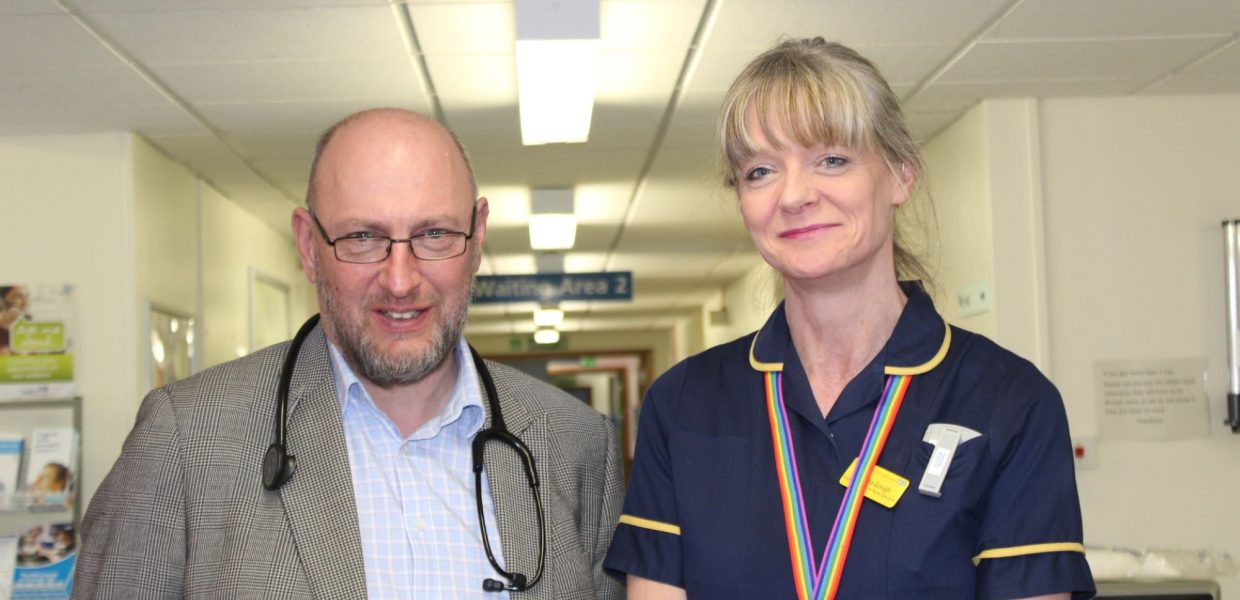We are raising awareness of tuberculosis (TB) in the hope more people will come forward and get themselves checked out.
Thursday March 24 is World TB Day and our respiratory staff are calling on people to get tested to prevent the spread of what is one of the world’s deadliest infectious killers.
TB is caused by bacteria – mycobacterium tuberculosis – that most often affects the lungs but can affect any part of the body. The disease is curable and preventable. It is spread from person to person through the air when an infectious person coughs or sneezes. However, the disease doesn’t spread very easily, usually only where there is close and prolonged contact with an infectious person.
Dr Stuart Baugh, respiratory consultant at Scunthorpe hospital, said: “While everyone is trying their best to avoid COVID-19, they may be missing the signs and symptoms of other illnesses like TB.”
The signs to look out for include: a cough that lasts more than three weeks; loss of appetite and unintentional weight loss; fever; chills and night sweats. Once diagnosed, it can be treated with special antibiotics. Once treatment starts people will begin to feel better after about two to four weeks, but they must keep taking the treatment for at least six months.
Dr Baugh said: “It is vitally important people finish the course of antibiotics because if they don’t the disease may come back, and they may be more ill and be infectious for longer. If left untreated or only partly treated, the disease can cause tissue damage to the lungs and, more importantly it can become resistant to the usual antibiotics.
It is crucial people take up the screening appointments when offered
Andrea Gough
“If drug resistance happens it can be extremely difficult to treat, requiring a complex drug regimen and the treatment period can be at least two years. People can also pass this more serious form of the disease onto others.”
Anyone can catch TB; however, some groups of people are more at risk than others. These include:
- People with a weakened immune system
- People living in poor quality housing
- People with alcohol and substance misuse
- People who have spent time in a country with high TB rates such as many countries in Asia, Africa, and Eastern Europe.
The symptoms can include:
- A cough for three weeks or longer
- Weight loss
- Loss of appetite
- High temperature or fever
- Night sweats
- Extreme tiredness or lack of energy.
Andrea Gough, lead respiratory/TB clinical nurse specialist, said: “If you have any symptoms it is important you talk to your GP or nurse if you are worried or experience these symptoms for more than three weeks. Anyone coughing up blood, however, should seek health advice sooner.”
She said one of the most effective ways to prevent the disease was to detect it in ‘latent form’. This is where the TB bacteria is ‘asleep’ in your body. You are not ill at the moment, but the bacteria can ‘wake up and make you ill in the future. The good news is you can be treated to help stop this happening.
A latent TB infection occurs when an individual is carrying the TB bacteria but doesn’t have any symptoms, so is not infectious to others.
The bacteria can however go on to cause disease in the future – this is why screening is offered to anyone who is known to have been in close contact with a confirmed case of TB, and to those arriving from countries with high rates of the disease as a precaution.
Andrea added: “It’s crucial people take up the screening appointments when offered. We must remain vigilant to the signs of TB and act quickly if we are going to prevent and control this disease in the future.”
